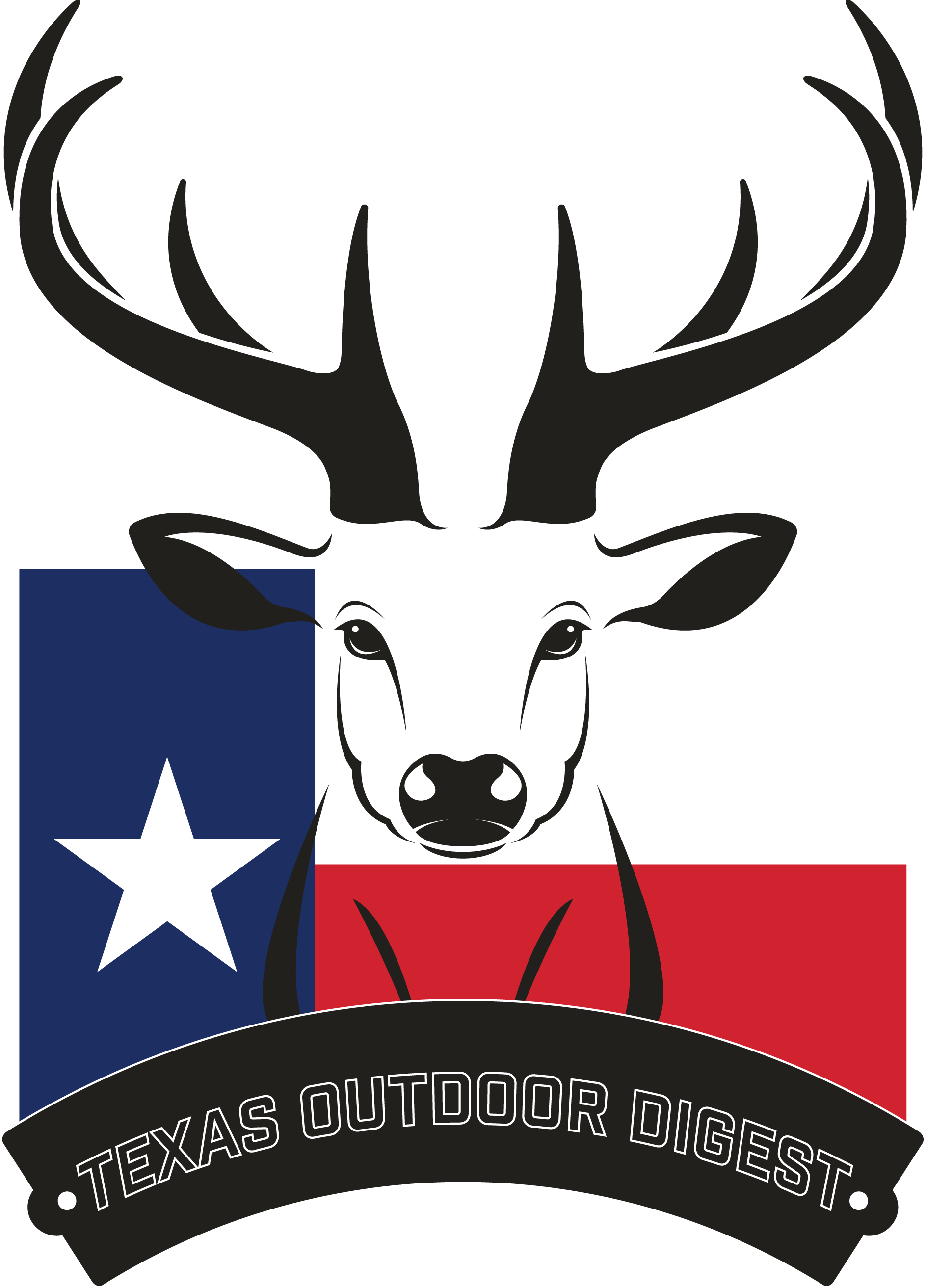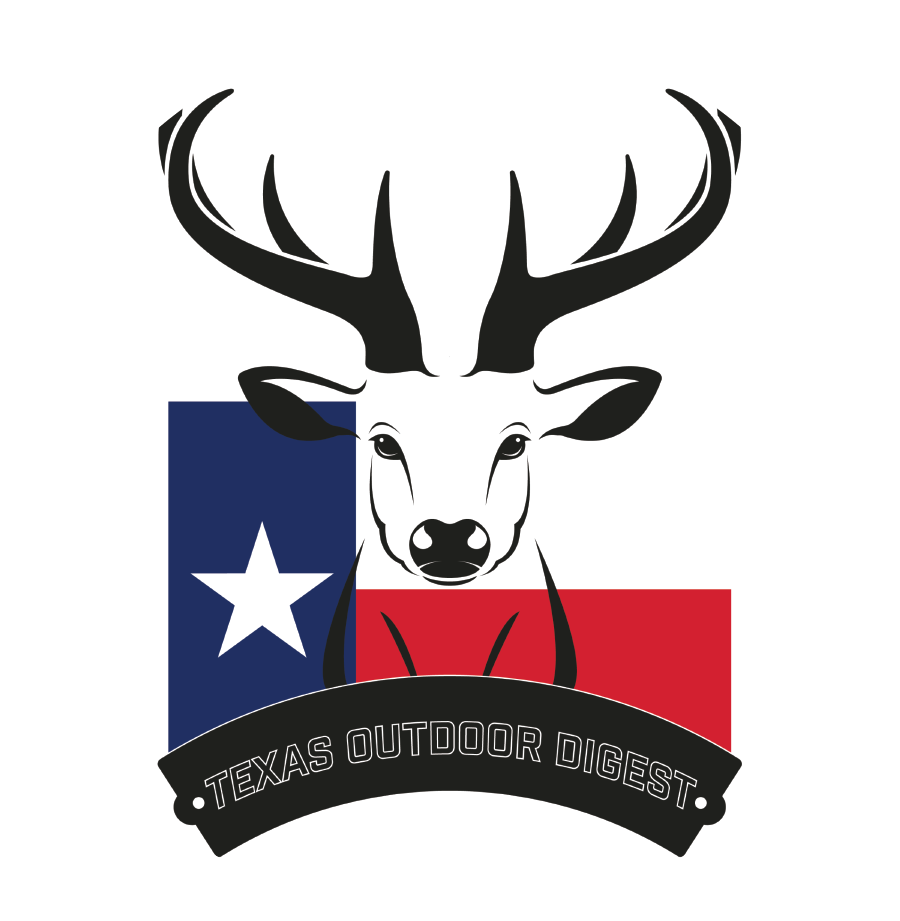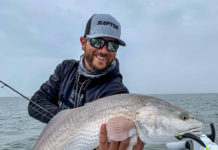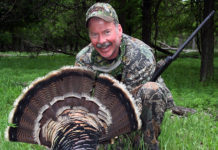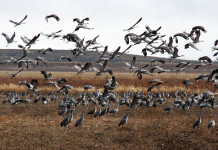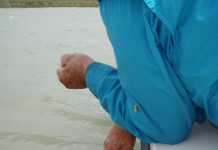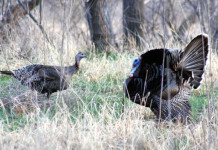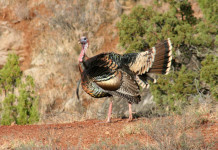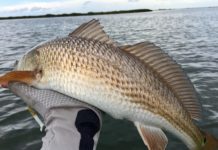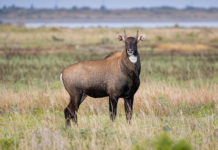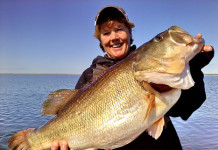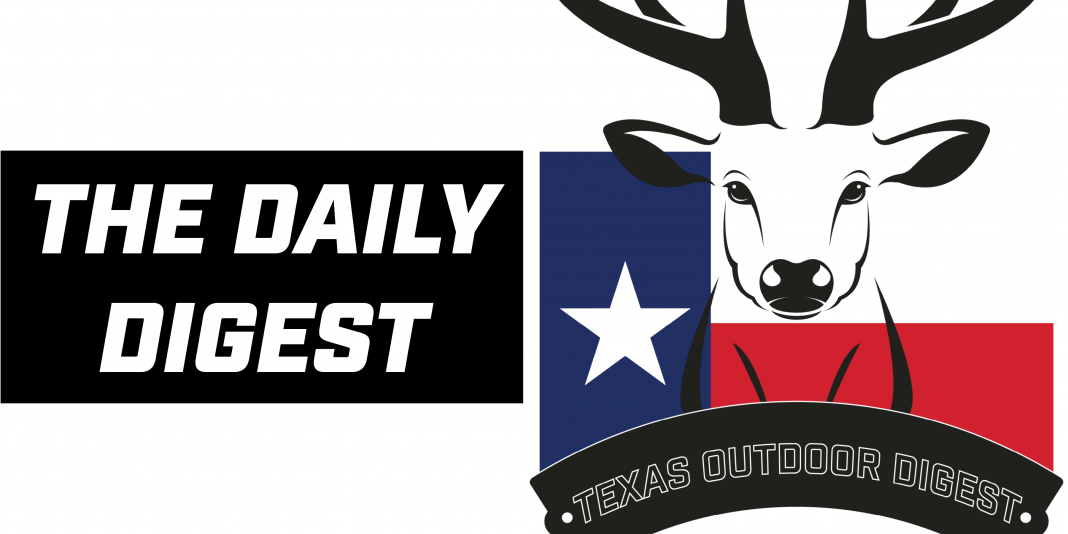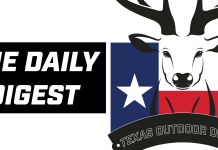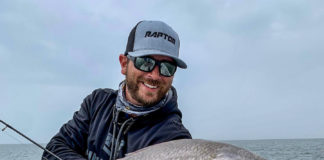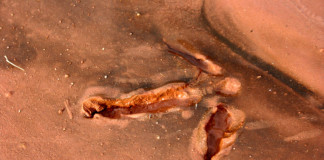The Daily Texas Outdoor Digest is sent to your inbox to keep you up to date about hunting, fishing, conservation and outdoors pursuits making headlines and going viral in the Lone Star State and beyond. It’s free, so subscribe today!
Here’s what’s worth reading today, Tuesday, July 14, 2020:
Caribou heart attack: Was the organ meat carrying a deadly pathogen?
The science is clear — handling raw caribou organs can be a hazardous activity, especially if the animal is infected with Brucellosis, which occasionally it is in Alaska. Allowing the raw organs to come in contact with your skin is not something to be taken lightly, as most hunters know. Brucellosis is a highly contagious disease caused by the Brucella suis bacteria type 4 found in caribou and reindeer.
When Anchorage activist Kathleen Bonnar tried to toss or shove a raw and bloody caribou heart at U.S. Sen. Dan Sullivan and his wife Julie, she could have been tossing a deadly infection at him. Blood from the organ, which had been tied with a clumsy noose, spattered onto “heart-stopping” Matt Shuckerow, as he wrestled the item from her and ushered Bonnar out the door of the fundraiser on Saturday evening.
It was unclear at the time just what Bonnar was reaching for in her bag, but the immediate reaction from witnesses was that they thought it might be a gun, a bomb, or some other weapon.
Shuckerow, a longtime political aide, has worked in Washington, D.C. on the staffs of both Sullivan and Congressman Don Young, and he personally knows people who were shot by the gunman at a congressional staff baseball game in 2017. Shuckerow knows the dangers that lawmakers face these days, particularly with the unhinged Left.
It turns out, this time it was just blood and guts being slung with a two-foot-long nylon rope tied to it, a raw organ from an animal considered sacred in some Alaska Native cultures.
These are the most common fishing injuries — and what to do about them
Fish long enough, veteran anglers say, and you’re bound to encounter a bit of misfortune.
Maybe you’ll end up slipping and falling into a river while you’re wading. Maybe you’ll end up with a fish hook stuck in your finger. Or nose. Or throat. Or maybe you’ll be unprepared and find yourself on the verge of becoming hypothermic.
All of those woes are real, and can happen at any time. A Maine newspaper asked a group of expert anglers and guides to recount their fishing horror stories, along with helpful hints and first-aid tips. Each had plenty to offer, and putting their lessons into action could make a huge difference for you, when the inevitable finally happens to you.
Outdoor businesses push for Great American Outdoors Act
More than 100 outdoor businesses, from Fortune 500 companies to mom and pop shops, including specialty retailers, apparel, gear and vehicle manufacturers, outfitters and guides, campground and marina operators, and more sent a letter to House leadership urging swift passage of the landmark, bipartisan Great American Outdoors Act.
It passed the Senate on June 17, and is aimed at stimulating the outdoor recreation industry, made up of thousands of small businesses, and provide safe and sustainable recreation access and infrastructure for generations to come.
As the more than 125 cross-sector companies — including Airstream, Bass Pro Shops, Brunswick, Cabela’s, Columbia Sportswear, Kampgrounds of America, Polaris Inc., Pure Fishing, The North Face, VF Corporation, Winnebago, Yamaha and more — identify in their letter, investments in conservation and recreation are needed to provide business certainty so the recreation industry can get back to what it does best — grow jobs, support healthy communities, economies and people, and provide more opportunities for everyone to benefit from time spent outside.
“Our entire industry continues to spearhead support for GAOA — from skiers to snowmobilers, hunters to hikers, campers to RVers and climbers to motorcyclists,” said Jessica (Wahl) Turner, executive director of the Outdoor Recreation Roundtable (ORR). “Businesses have been making calls, running sign-on campaigns and sending letters. This unity in our business community showcases the incredible things we can accomplish when we work together. The House of Representatives has the opportunity to do something that truly outlasts their time in office and that will benefit the nation for decades to come by passing this once-in-a-generation legislation.”
Texas Parks and Wildlife launches innovative bass tracking study
With more people heading out to the water, recent reports have shown anglers aren’t catching bass as often despite healthy fish populations in lakes. The Texas Parks and Wildlife Department launched a new study tracking the movements and behaviors of largemouth bass at Toledo Bend and Lake Fork to try and figure out why.
“Our goal is to provide the best fishing opportunities possible for our anglers,” said Jake Norman TPWD fisheries biologist, who is co-leading the study. “I think studying the actual behavior of bass and passing this information on to the anglers is a great way to do that.”
This unique study uses radio transmitters implanted in the fish to track their movement and habits on both lakes to see if increased traffic and angling on the lakes has influenced their behavior. The study began in May and a total target number of 50 fish are slated to be tracked. Researchers plan to track 20 fish on Toledo Bend and 30 on Lake Fork. The expected life span of the transmitters is 1.5 to 2 years so researchers anticipate it may take up to 2.5 years to complete the study and generate the results.
“Historically, most studies were designed with the intent of gaining knowledge to better manage a fish population,” said Todd Driscoll TPWD fisheries biologist, who is also co-leading the study. “This specific telemetry study is focused on fish behavior and how that information can directly help anglers and potentially guide them in how they approach fishing the lake.”
Mountain Dew will pay for your hunting or fishing license in new outdoors promotion
Mountain Dew sees “heavy buyers” in states like Arizona, Colorado, Idaho, Montana, Nevada, New Mexico, Utah and Wyoming, so integrating with the activities residents of those states already like to do is a no-brainer for the company.
But outdoor recreation will look a lot different for many in the United States this summer, as the novel coronavirus continues to spread and social distancing continues to remain the order of the day.
Two of Americans’ favorite summer outdoor pastimes, however — hunting and fishing — are easily done alone or in small groups. And in its newest promotion, Mountain Dew wants to lessen the potential financial barrier keeping hunters and anglers from getting outside this summer.
As part of its “Out Here. It’s DEW.” outdoors campaign, Mountain Dew’s $100,000 Outdoor Stimulus will reimburse one 2020 hunting and fishing license per household for the first 5,000 outdoor enthusiasts who apply.
Those who win the contest will receive a one-time $20 payment toward their fishing and hunting licenses, paid out via Venmo or check. Licensed fisherman and hunters’ permits must fund wildlife conservation, education and restoration within their states.
Grizzly management beset by cloud of legal maneuvers
The last time the U.S. Fish and Wildlife Service lost a grizzly bear delisting rule in a federal appeals court, it took a decade to craft another.
But unlike the 2007 effort to turn grizzlies in the Greater Yellowstone Ecosystem over to local management, the service’s 2017 rule was not completely rejected by the U.S. 9th Circuit Court of Appeals. Instead, the judges ordered the service to fix three major problems. Doing so could repurpose the Interagency Grizzly Bear Committee (IGBC) at a moment when its identity and mission have been fading.
And the 9th Circuit ruling is just one of a half-dozen legal proceedings that may reshape the landscape holding the grizzlies and the people who coexist with them. They range from challenges to the way the U.S. Forest Service tracks motorized trespassers on closed backcountry roads to the acceptability of using bait to hunt black bears in grizzly country. Grizzly advocates have sent official warnings of a coming lawsuit over a logging project in a potential linkage area between three grizzly recovery zones and questioned whether the Montana Department of Fish, Wildlife & Parks (FWP) has improperly pushed the Montana Governor’s Grizzly Advisory Council toward a pro-hunting stance.
In the Yellowstone region, a Forest Service decision to allow cattle grazing could allow government-authorized killing of 72 grizzlies over the coming 10 years — and has drawn another lawsuit. Surrounding all of this is a legal claim that grizzlies should be restored to their entire historic range in the Continental United States, potentially from California to Colorado.
Conservation groups upset by North Cascades grizzly decision
The forested mountains in and around North Cascades National Park in north central Washington have long been considered prime habitat for threatened grizzly bears, so environmental groups are upset the Trump administration scrapped plans to reintroduce the apex predators there.
U.S. Secretary of the Interior David Bernhardt last Tuesday announced his agency will not conduct the environmental impact statement needed to move forward with the idea. That drew rebukes from conservation groups, who have worked for decades to grow the tiny population of about 10 grizzlies in the vast North Cascades, where writer Jack Kerouac spent the summer of 1956 as a lookout for wildfires.
“Grizzlies have been an integral part of the North Cascades ecosystem for 20,000 years but are now one of the most threatened populations in North America,” said Rob Smith, northwest director of the National Parks Conservation Association. “This purely political decision ignores science, Park Service recommendations and overwhelming public support.”
Smith noted former Interior Secretary Ryan Zinke supported grizzly recovery efforts there before leaving the Trump administration. In 2015, under President Barack Obama, the federal government began an environmental-impact statement planning process on restoring the bears in the North Cascades.
Nebraska big game guiding business and owner plead guilty to Lacey Act conspiracy violations
U.S. Attorney Joe Kelly announced that Jacob N. Hueftle, age 30, and Hidden Hills Outfitters LLC, of Broken Bow, Nebraska, entered a plea of guilty in federal court in Omaha for conspiracy to violate the Lacey Act and the Migratory Bird Treaty Act.
The Lacey Act prohibits the trafficking in interstate commerce “tainted” (i.e., taken in violation of a law or regulation) wildlife, fish, or indigenous plants. The Migratory Bird Treaty Act prohibits, among other things, the shooting and killing of hawks, falcons and other migratory birds. Hueftle and HHO each admitted to one felony conspiracy count involving the illegal transport, purchase and sale of wildlife in interstate commerce. Hueftle and HHO’s sentencing is set for Oct. 5. Hueftle faces up to a five-year term of imprisonment and a fine of $250,000. HHO faces up to five-year term of probation and a $500,000 fine.
An investigation determined that between September 2012 and April 2018, Hueftle, HHO, and other conspirators provided guiding and outfitting services to hunting clients for the unlawful taking of no less than 97 big game animals or wild turkeys in violation of Nebraska State Law including 30 white-tailed deer, 34 mule deer, six pronghorn and 27 wild turkey.
To date, 29 defendants have pleaded guilty and have been sentenced and ordered to pay a total of $248,048 in fines and restitution for underlying violations related to deer taken within baited areas; deer, pronghorn, and wild turkeys taken with weapons or firearms prohibited during their respective hunting seasons; deer taken during closed season hours, from the road, or without a valid permit; and mule deer taken within the Mule Deer Conservation Area.
19 hunting dogs killed in Camden County, N.C.
An investigation is underway after the suspicious death of 19 hunting dogs in Camden County. Owner Jamie Sanders has offered a $10,000 reward, according to a post on the Albemarle Houndsmen Association Facebook page.
The dogs were poisoned, according the Facebook post.
The Camden County Sheriff’s Office is investigating the case, Sheriff Kevin Jones said. Harris reported one of his dogs was dead on June 29. The dog had been healthy the day before, he told investigators. In the following days, Sanders reported a total of 19 dogs dead.
Days earlier, Sanders had a dispute with an acquaintance in part over hunting dogs, Jones said. A deputy responded and Sanders was charged with assault. It is not certain if the incidents are related, Jones said.
The dogs are known as running walker hounds and can cost $1,500 to $2,000, said Bobby Harris, president of the Albemarle Houndsmen Association. They are used to hunt deer and fox.
So many NBA players are fishing to pass the time in the bubble
There aren’t a whole lot of activities to do while stuck in the NBA bubble at Disney World, save for practicing, gaming, checking out the players’ lounge, golfing and complaining about the quarantine food.
But players have found something and a bunch of them are doing it: fishing!
We already saw Philadelphia 76ers star Ben Simmons show off his catch and then struggle to throw it back in the lake. Since then, social media has been filled with photos and videos of players with what they’ve caught or in the middle of snagging a fish.
Here’s a rundown, starting with Simmons.
Stay in the Know With The Daily Texas Outdoor Digest
If you haven’t subscribed yet, there’s no better time than right now (We hate spam and we won’t share your information with anyone. That’s just not cool):
